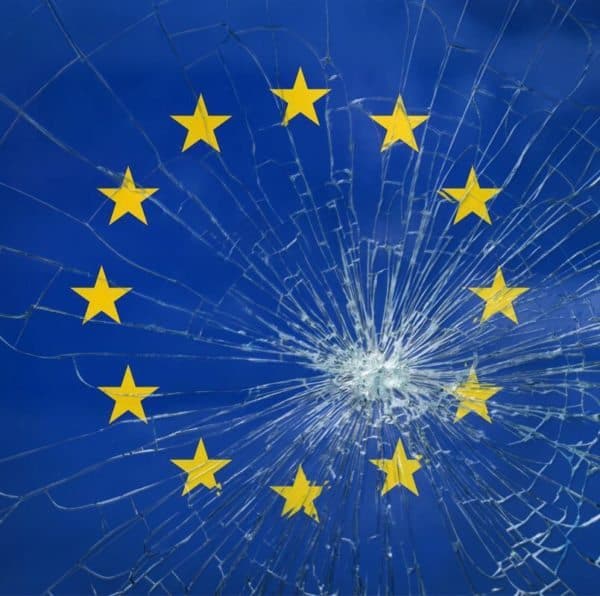
At Crowddialogue Europe in Graz, Austria last week, a panel presentation, moderated by Ronald Kleverlaan, inquired about the status of the European legislation on crowd-investing.
 Looking back to 2014, with the EU Commission’s Communication “Unleashing the Potential of Crowdfunding”, soon followed by the 2015 Communication “Action Plan on Capital Markets Union”, the European governing body acknowledged that supporting investment crowdfunding was a priority. The EU viewed crowdfunding as an opportunity to stimulate investments and create much-needed jobs.
Looking back to 2014, with the EU Commission’s Communication “Unleashing the Potential of Crowdfunding”, soon followed by the 2015 Communication “Action Plan on Capital Markets Union”, the European governing body acknowledged that supporting investment crowdfunding was a priority. The EU viewed crowdfunding as an opportunity to stimulate investments and create much-needed jobs.
Concurrently, European financial authorities produced position papers, confirming the importance of crowdfunding and going through the main regulatory topics: ESMA (European Securities and Market Authority) in 2014 and EBA (European Banking Authority) in 2015.
 ESMA pointed out that several European countries had crafted specific regulations on crowdfunding. It appeared to be a policy priority to strive for maximum homogenization and clarification regarding crowdfunding regulations across European countries. Unfortunately, the Commission paused without taking additional regulatory steps, letting national regulations to flourish very differently.
ESMA pointed out that several European countries had crafted specific regulations on crowdfunding. It appeared to be a policy priority to strive for maximum homogenization and clarification regarding crowdfunding regulations across European countries. Unfortunately, the Commission paused without taking additional regulatory steps, letting national regulations to flourish very differently.
Indeed, in the three years since the Commission organized multiple workshops, several regional reports and established a consulting body. The EU also initiated the European Crowdfunding Stakeholders Forum (an entity that did not properly represent stakeholders and enjoyed the skill of just a few experts). The Forum produced some generic recommendations, such as the need of a code of ethics and a secondary market, more typical of students’ papers than international experts commissions.
Today, my opinion of the policy landscape is quite pessimistic now:
- the European internal market exploded: more than € 5.4 billion was collected through alternative finance in 2015, according to the University of Cambridge report, with about € 7 billion forecasted by the end of 2016.;
- Regulations were introduced in most Member State without any coordination, so that at the moment there are at least four different general legal frameworks, some within the MIFID system and some outside;
 This disparate approach creates challenging interpretation troubles. For example, concerning the EU passporting system: Lasse Makela, CEO of Invesdor (the first equity crowdfunding platform to get a full MIFID license) expressed his concern that their EU passport for the 28 Member States is somewhat useless, as crowdfunding is regulated outside MIFID;
This disparate approach creates challenging interpretation troubles. For example, concerning the EU passporting system: Lasse Makela, CEO of Invesdor (the first equity crowdfunding platform to get a full MIFID license) expressed his concern that their EU passport for the 28 Member States is somewhat useless, as crowdfunding is regulated outside MIFID;- The lack of uniform regulations makes it very difficult to collect cross-borders investment and to drive scale, which is vital for this kind of industry.
- No EU-wide passporting is allowed for lending platforms, as only payment services are regulated at European level. Just one single step in the equation.
It is now quite complicated and even dangerous to change things. Creating new rules, when platforms and service providers have invested millions, have set up businesses and are finally generating traction. Unfortunately, the Commission missed a significant opportunity to design a uniform and effective market from which each Member State would have benefited.
Opportunity Lost
 In the July 9th 2015 resolution, the European Parliament stated that the Capital Market Union (CMU) should create an appropriate regulatory environment that enhances cross-border access to information on the companies looking for credit, quasi-equity and equity structures in order to promote growth of non-bank financing models, including crowdfunding and peer-to-peer lending. And in its January 19th 2016 resolution, the Parliament asked the Commission to give breathing space for the emergence of these new models and to explore and promote them, giving priority to their cross-border dimension, ensuring the reduction of market entry barriers.
In the July 9th 2015 resolution, the European Parliament stated that the Capital Market Union (CMU) should create an appropriate regulatory environment that enhances cross-border access to information on the companies looking for credit, quasi-equity and equity structures in order to promote growth of non-bank financing models, including crowdfunding and peer-to-peer lending. And in its January 19th 2016 resolution, the Parliament asked the Commission to give breathing space for the emergence of these new models and to explore and promote them, giving priority to their cross-border dimension, ensuring the reduction of market entry barriers.
Despite this clear political mandate, and against the Commission’s own repeated statements, we are at this point:
- The Commission’s Legislative Proposal for the Prospectus Regulation reduces the exemption for prospectus obligation from €5 million to €500,000, putting real estate, energy, life-sciences, SME growth and expansion funding off the market.
- A Commission Staff Working Document dated May 3rd 2016 stated that:
- The nature of crowdfunding is predominantly local (probably some “expert” confused crowd-investing with donations and rewards-based crowdfunding, and forgot that it’s the Commission’s responsibility to have allowed cross-border investing);
- The market is still relatively small (regardless it is going far beyond the more optimistic forecasts of the World Bank).
- Therefore there is no strong case for EU level policy intervention.
 Leadership Failure at the EU
Leadership Failure at the EU
This is sad and disappointing. Without any logical explanation, the EU policy makers have wasted the perfect opportunity to regulate an industry from zero, avoiding harmonization troubles and boosting what the same Commission had identified as a strategic segment of the capital markets.
 Alessandro Lerro is an Italian attorney and founder of Lerro & Partners. He is a prominent Italian expert in crowdfunding and is a regular speaker at conferences and workshops. Alessandro is also General Counsel of the European Equity Crowdfunding Association and Board Member of AISCRIS. He is co-author of the recently published book “Crowdfunding for Sustainable Entrepreneurship and Innovation”. The publication is a pivotal reference source for the latest scholarly research and business practices on the opportunities and benefits gained from the use of crowdfunding in modern society, discussing its socio-economic impact, in addition to its business implications. You may follow Alessandro on Twitter @allessandrolerro.
Alessandro Lerro is an Italian attorney and founder of Lerro & Partners. He is a prominent Italian expert in crowdfunding and is a regular speaker at conferences and workshops. Alessandro is also General Counsel of the European Equity Crowdfunding Association and Board Member of AISCRIS. He is co-author of the recently published book “Crowdfunding for Sustainable Entrepreneurship and Innovation”. The publication is a pivotal reference source for the latest scholarly research and business practices on the opportunities and benefits gained from the use of crowdfunding in modern society, discussing its socio-economic impact, in addition to its business implications. You may follow Alessandro on Twitter @allessandrolerro.


 This disparate approach creates challenging interpretation troubles. For example, concerning the EU passporting system: Lasse Makela, CEO of Invesdor (the first equity crowdfunding platform to get a full MIFID license) expressed his concern that their EU passport for the 28 Member States is somewhat useless, as crowdfunding is regulated outside MIFID;
This disparate approach creates challenging interpretation troubles. For example, concerning the EU passporting system: Lasse Makela, CEO of Invesdor (the first equity crowdfunding platform to get a full MIFID license) expressed his concern that their EU passport for the 28 Member States is somewhat useless, as crowdfunding is regulated outside MIFID; Leadership Failure at the EU
Leadership Failure at the EU